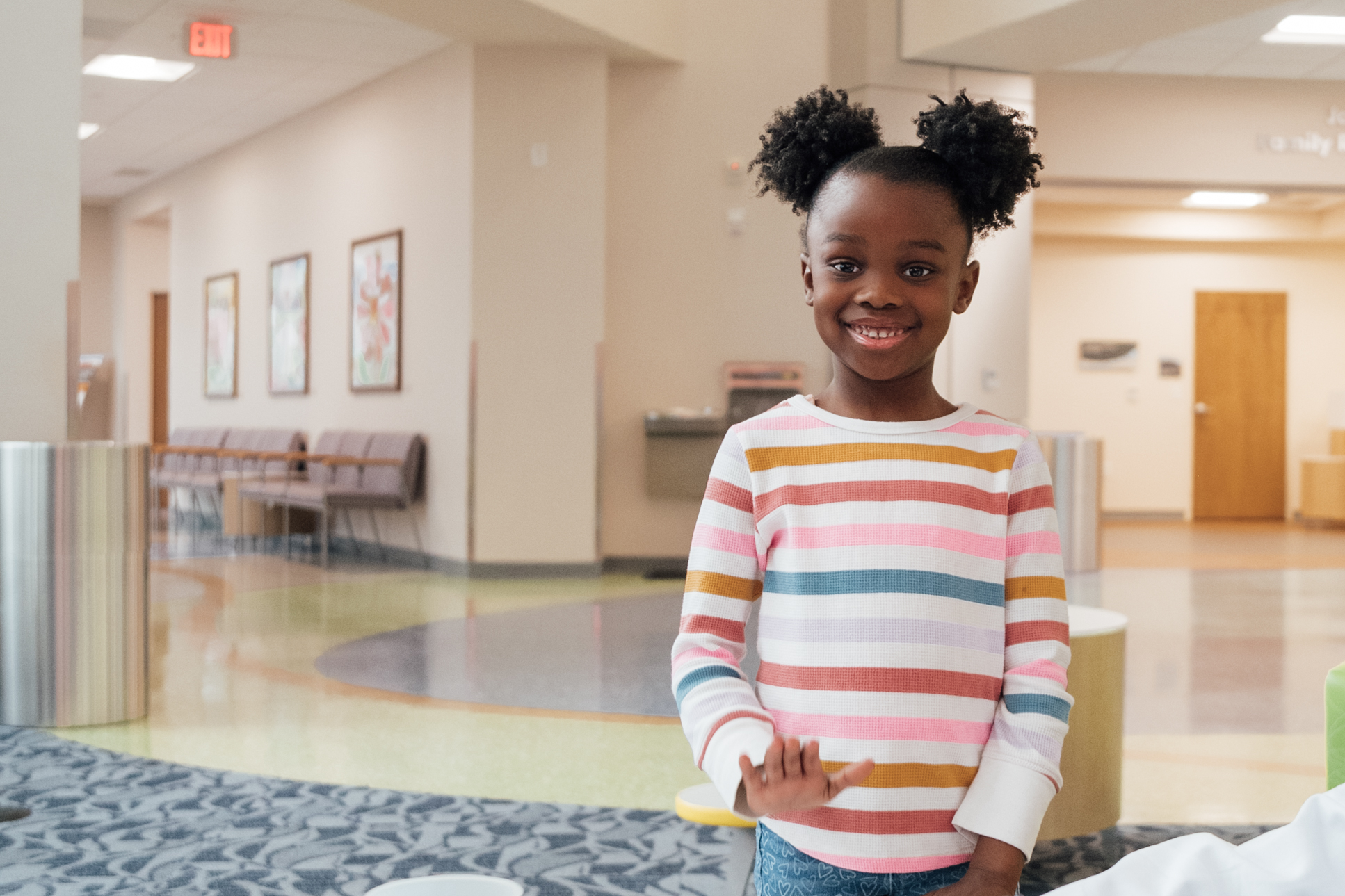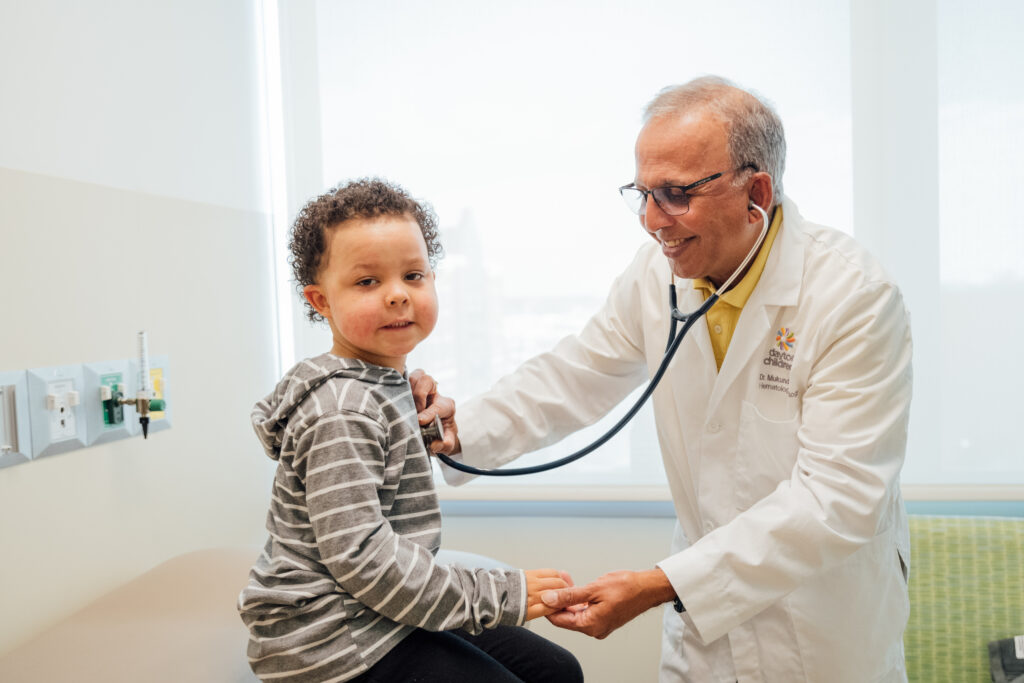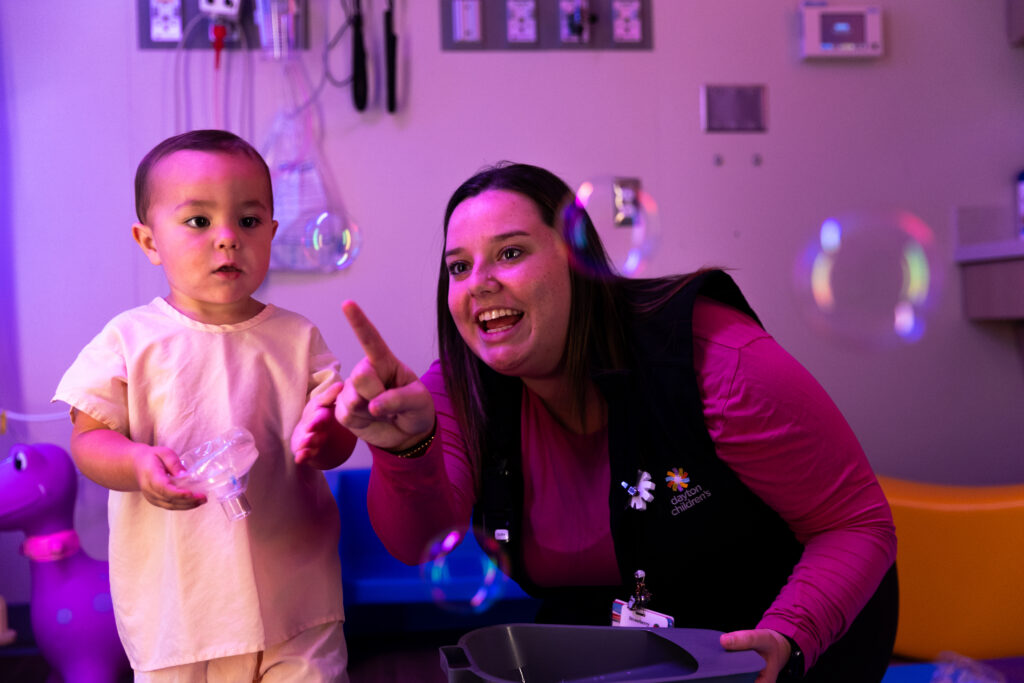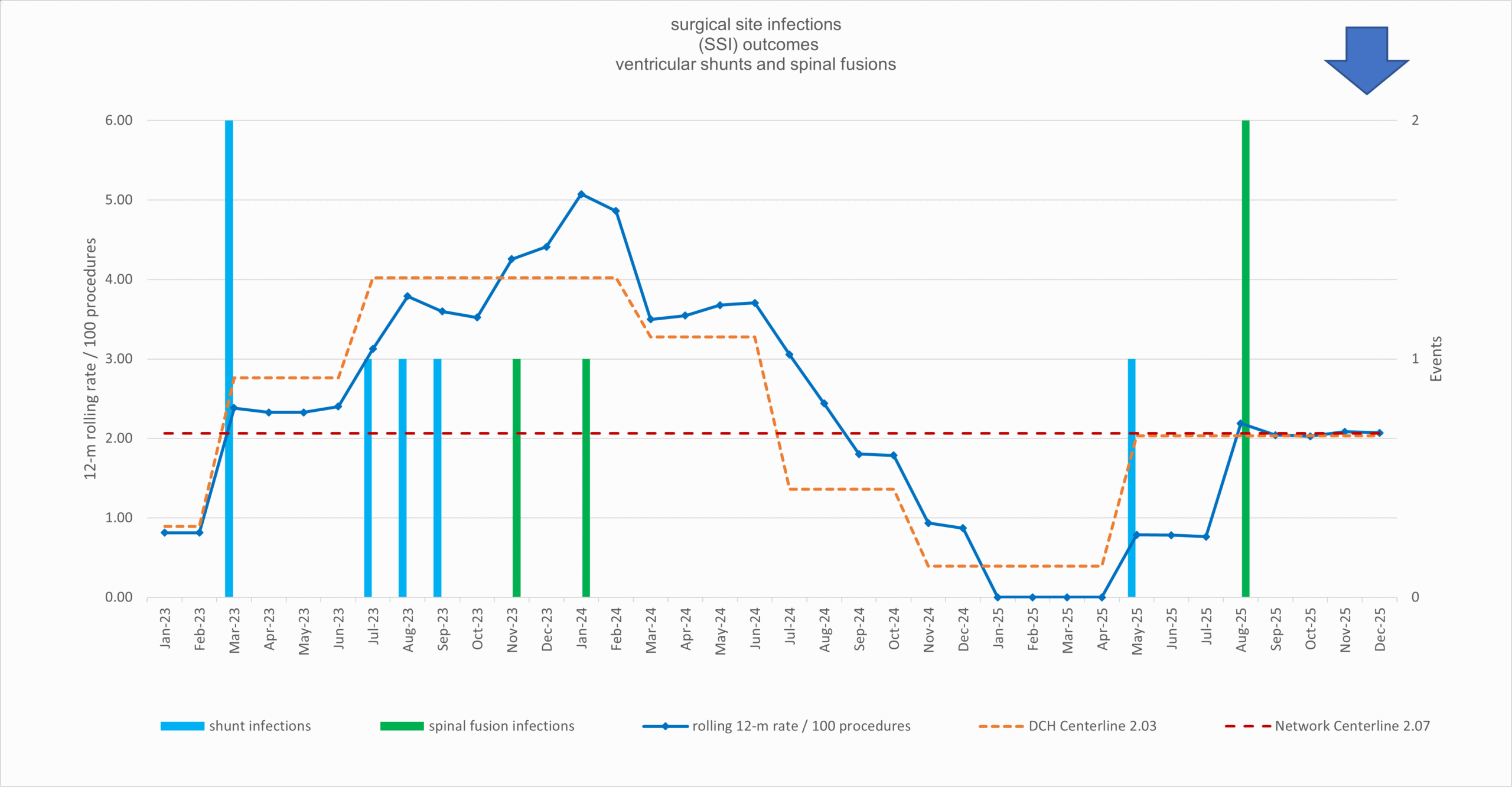surgical site infections




why is this a priority to us?
- Surgical site infections can occur after any surgery when bacteria get into surgical wounds
- These can lead to need for antibiotics, longer recovery times, additional surgeries, and additional time in the hospital
who’s at greatest risk?
- Anyone having surgery can develop an infection
- Patients who are having devices implanted – such as rods in backs for scoliosis, or shunts in brains
- Large intestine (Colon) surgeries due to the large number of bacteria that naturally live there
what are we doing to reduce infections?
- We make efforts to reduce the number of bacteria on the skin prior to surgery by:
- Asking patients to bathe the night before surgery
- We wash their skin again in the pre-op area prior to surgery
- The area that will be cut is thoroughly cleaned just prior to incision
- We give antibiotics in our highest risk cases just prior to incision to help reduce the chance of infection
what do we measure?
- At present we measure the number of infections related to spine cases and to specific neurosurgery cases.
- Beginning this year, we will also be measuring the number of infections related to large intestine cases.
- The rate is measured by total number of infections per 100 procedures (spine + neurosurgery)

related links
Visit the links below to learn more about how we measure quality and safety and overall patient experience.
explore care options
From the common to the complex, Dayton Children’s is here for you. Find a trusted provider who knows and understands kids, schedule an appointment online or find care now.
